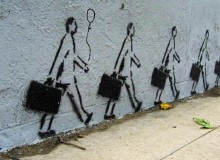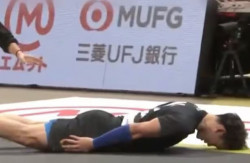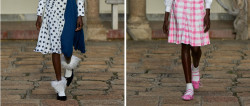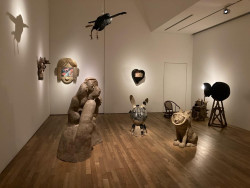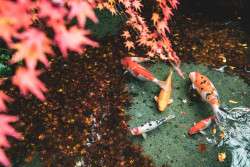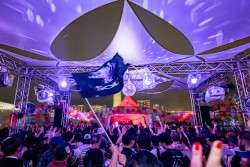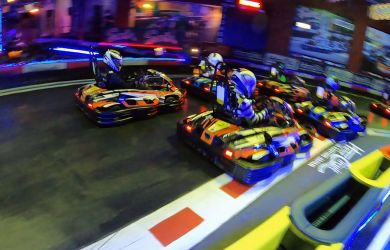
September 30, 2010
Manu Chao La Ventura
The Spanish rebel rocker trades in his stadium act for a trio
Originally published on metropolis.co.jp on September 2010

Courtesy of Smash
Rabble-rousing rocker Manu Chao plays to stadiums across Europe and Latin America, but as he’ll demonstrate in a visit to Tokyo next week, protest anthems needn’t always be delivered by a megawatt band to an audience of tens of thousands.
“It’s quite normal for me,” Chao says by phone from Spain, referring to his acoustic trio, La Ventura. “We have always played in little bars, and we’ve had this show for years that is very different from the full band.”
Just back in Barcelona from visiting family, Chao is settling into his studio for an evening of recording. “Because we are only two musicians and a drummer, we know each other perfectly,” he continues. “We don’t need to prepare the show—we just start playing and every night is a different trip.”
For 49-year-old Chao, one of the leading European pop stars of his generation, the trio grows out of a desire not to be bound by the conventions of the stadium rock show. “If you want to get out of the middle of the road, you just keep your eyes on your two friends and go,” Chao explains in accented but fluent English. “The most important thing about the trio is the capacity to improvise every minute—you don’t need to keep your eye on seven musicians.”
The son of leftist Spanish exiles in Paris (his grandfather was sentenced to death by dictator Francisco Franco), Chao, first with his band Mano Negra and more recently with Radio Bemba, has eschewed rock star trappings. He still makes a point of finding time to jam on the streets and in tiny bars and clubs of the cities he tours.
In previous visits to Japan in the early ’90s and 2000s, he even played in the streets of Tokyo. “I have great memories of the bands in Yoyogi Park,” he recalls. “We played there and it was a wonderful cacophony. The mix of all musics together was an amazing thing for me.”
Chao doesn’t rule out further impromptu jam sessions when he visits for gigs at Liquidroom and the Asagiri Jam festival. “You never know what we might do in Japan,” he says. “I’m ready for anything.”
But Chao has harsh words for Barcelona, the city where he cut his teeth after forming Mano Negra in the immigrant melting pot of suburban Paris. “Politically, they are very good at marketing the city around the world, but what’s happening inside is not what they’re telling,” he jibes. “It’s all ‘Blah blah blah’ about how it’s so culturally lively. Twenty years ago, it was really easy to play in the streets, and at that time it was one of the best music schools on the planet because you could play your songs and make a living. But now it’s very difficult.”
Inspired by the ’70s protest punk of bands like The Clash and the peace-and-love messages of Bob Marley, Mano Negra and Radio Bemba fused rock with reggae, ska, Latin, Arab and other so-called world music influences, creating an explosive mishmash that resonated across Europe, Latin America, and recently even English-speaking North America.
A reedy but insistent voice for the disenfranchised—“Radio Bemba” is the name of the clandestine radio network operated by Castro’s guerillas in the Cuban Revolution—Chao always tries to get out of the comfort zone, once even buying an old train and touring the Colombian countryside, where he performed to peasants and drug traffickers.
“I learned to play rock’n’roll in the city, but in the countryside, you learn much different types of music,” he says. “More and more—I’m not really able to talk about Asia because I don’t know much about it—but in South America and Europe, the real border is not between countries, it’s between city and countryside.”
In addition to Chao’s revelation in Japan about food (“It’s not a joke—it changed my way of life and eating”), he’s impressed by the country’s openness to music. “I really feel that Japanese people have an incredible capacity to understand music, and to experiment with other cultures and music forms,” he says. “I was amazed to find music from everywhere at record shops in Japan.”
For Chao, the adage “Music is a universal language” is the credo that underpins his entire career. “If you talk about Bob Marley, for example, he found a universal language. In all the neighborhoods of all the planet, you can hear Bob Marley. It’s just one example. If you really listen to the music of every culture—the deep roots music—sometimes it’s amazing to see the affinities. If you’re a good musician of your own folklore, I believe you can jam with any kind of people.”
Manu Chao La Ventura
Euro king of world music with trio. Oct 4, 7pm, ¥6,500. Liquidroom, Ebisu. Tel: Smash 03-3444-6751.
